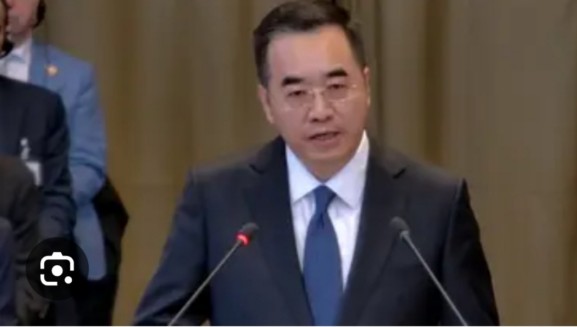China: Arms struggle against occupier is legitimate under international law

Says Palestine entitled to self determination
Emmanuel Ukudolo I Thursday, Feb. 21, 2024
HAGUE, Netherlands – China today joined other countries at the International Court of Justice, ICJ at the Hague, Netherlands, proving that Palestine has the right to self determination and that arms struggle is legitimate under international law against occupiers.
Ma Xinmin, China’s representative in Netherlands, told the UN court that international law does not recognise remedial self determination, noting that the right to self determination of Palestine has been consistently recognised by the UN, hence Palestine is recognised by many nations.
He argued that Palestine has the right to preserve its territorial integrity, to freely determine its political, economic and social status, and to natural wealth and resources. He said arms struggle is distinguished from acts of terrorism, adding that arms struggle is recognised in international law and that struggle against colonists should not be considered as acts of terrorism.
“Use of arms against colonialists is not illegitimate”, he said, quoting relevant international laws. At least one million Palestinians are in prison in Israel, with the current brutal invasion by Israel taking 29, 410 lives, while 69, 455 Palestinians have been injured.
Besides, 130 journalists have been killed, 156 UN staff have also lost their lives to the collective punishment of Palestine by Israel. Israel has lost 1, 139 in October 7, 2023 and 235 soldiers killed in Gaza.
Ma Xinmin noted that occupying foreign territory in whole or in part is illegal, and that Israel’s occupation has been persistently recognised as unlawful in 242 security resolutions.
He argued that the right of the occupier to self defence depends on the legitimacy of the occupation, quoting legal maxim that no one can take advantage of its own wrong.
“Occupiers can only use arms on temporary measures, not arms as used in battle, it must be within the limits of international law”, Xinmin told the ICJ.
He said that the use of force by an occupier must be proportionate, and warned against the Rafah offensive, while pledging support for a two state solution.
He averred that the occupying power is obliged to protect civilians and properties and refrain from plundering resources, deporting inhabitants and practising apartheid policies.
He argued that 57 years have passed since Israel occupied Palestine, while the sovereignty of the occupied territory remains the same.
He said that justice has been long delayed and called for continued negotiation for peaceful settlement, of the two states coexisting in peace, living together in peace and harmony.
He said the ruling on the legal consequence of the occupation of Palestine will aid future negotiations with Israel.

